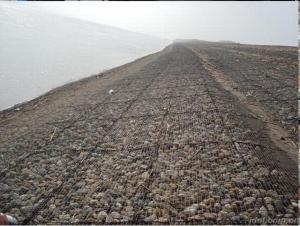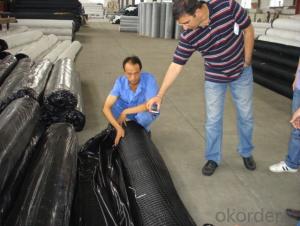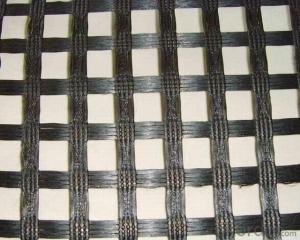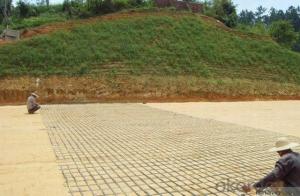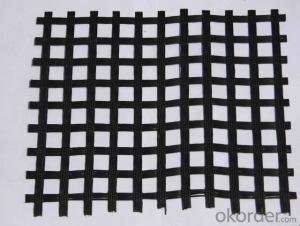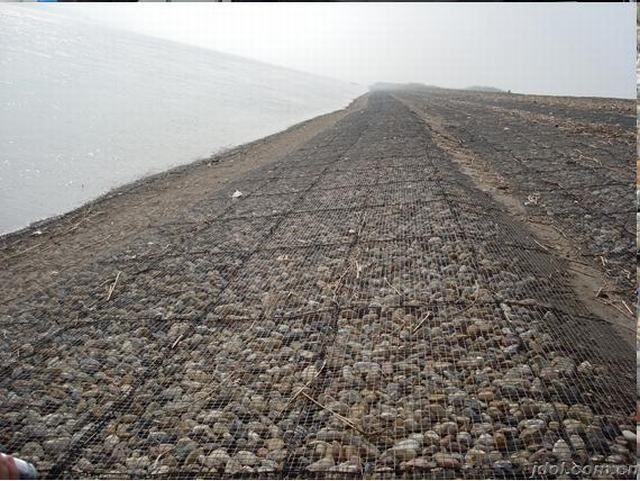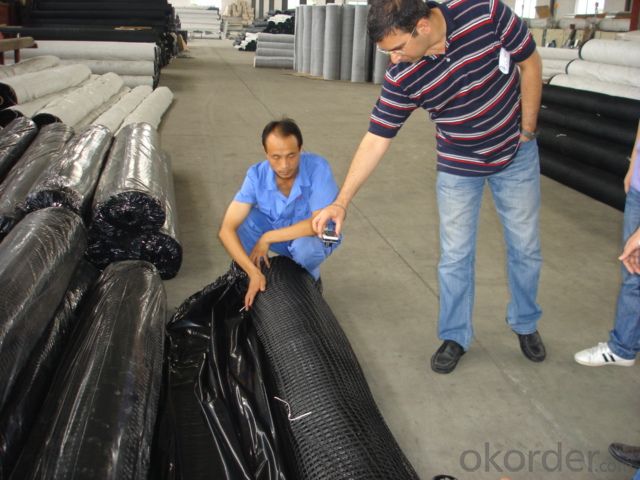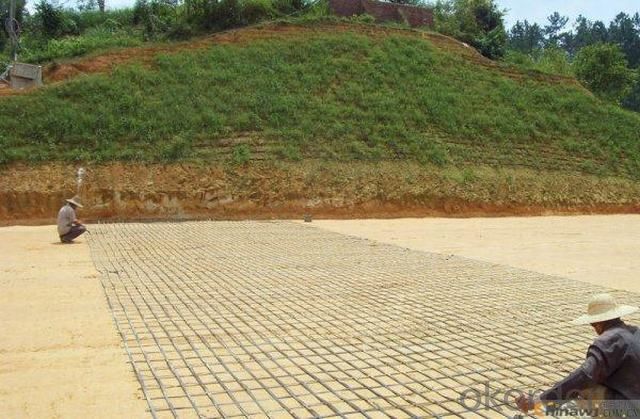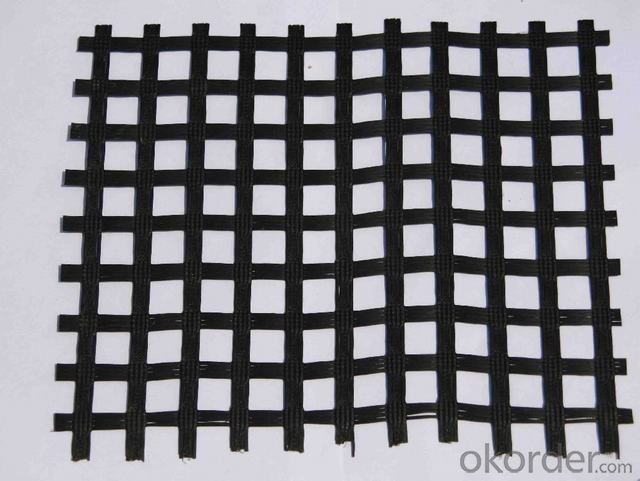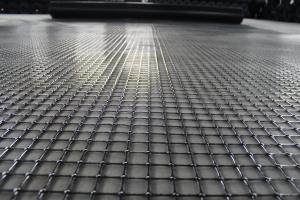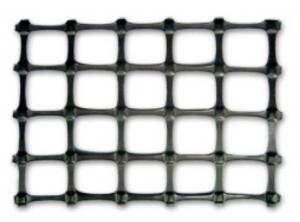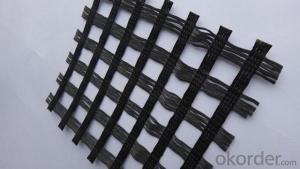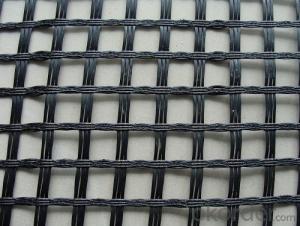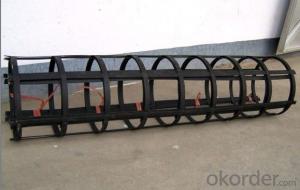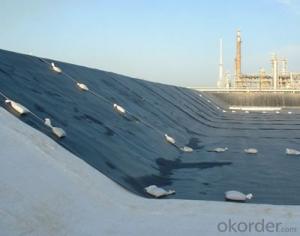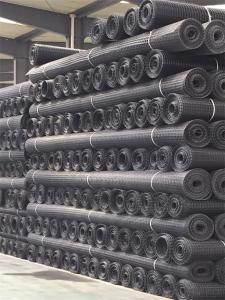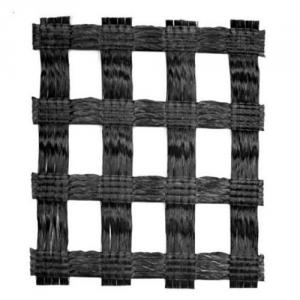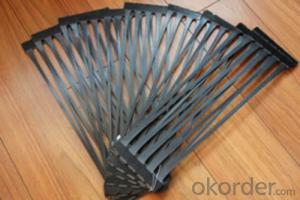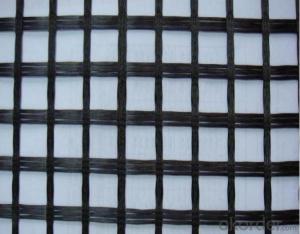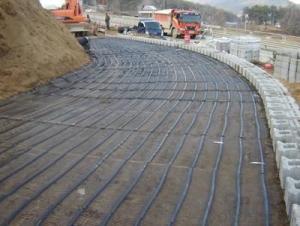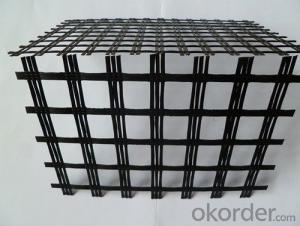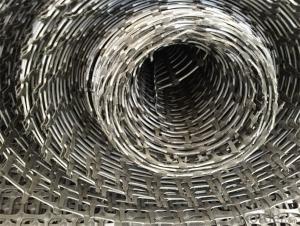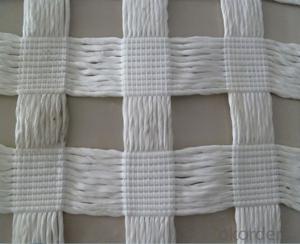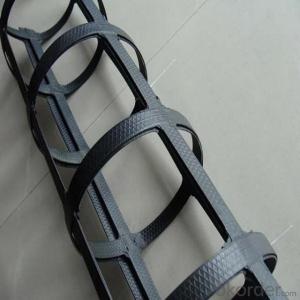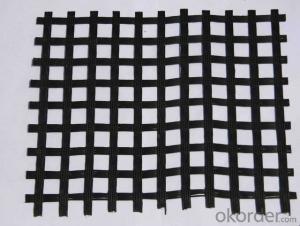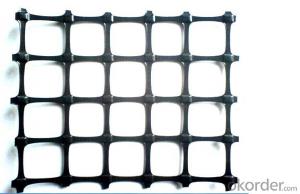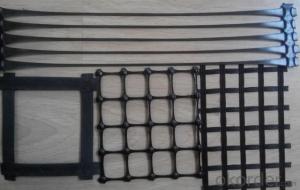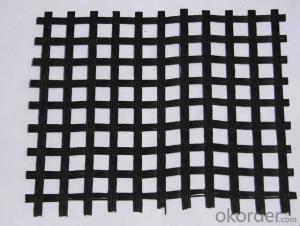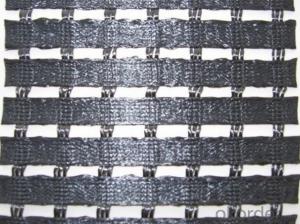Que Son PVC Coated Polyester Geogrids for Civil Engineering and Road Construction
- Loading Port:
- Qingdao
- Payment Terms:
- TT or LC
- Min Order Qty:
- 5000 m²
- Supply Capability:
- 10000000 m²/month
OKorder Service Pledge
OKorder Financial Service
You Might Also Like
Polyester Geogrid Introduction
The warp knitting polyster geogrid use excel raw materials, with warp knitting oriented structrue , latitude and longitude in the fabric to the yarn between not curving condition, the intersection unifies mutually with the excel in textile fiber filament bundle, forms the reliable combining site, displays its mechanical properties fully.
Polyester Geogrid Features
Transmits high tensile forces with low elongation
High ultimate tensile strength
Excellent long-term behavior due to low creep effects
High resistance to soil micro-organisms and chemicals, UV radiation and mechanical damage
Good grid/soil interaction through optimum sizing of the geogrid mesh to suit the maximum coarse particle size of the soil
Ease of installation through low weight per unit area and flexible, adaptable structure
Very wide range of available strengths, uniaxial and biaxial structures
Polyester Geogrid Application
Structural layers supporting road, railway and airport construction
Site access roads and transport routes
Retaining walls and steepened slopes
Slope stabilization
Noise reduction barriers
Rehabilitation of waste ground
Earth embankments over piles
Landfill
Bridging of voids and sinkholes
Polyester Geogrid Specifications
Property | Test Method | PET | PET | PET | PET | |
40-25 | 50-35 | 60-30 | 80-30 | |||
Ultimate tensile strength(1)(kN/m) | MD | EN ISO 10139 | 25 | 35 | 30 | 30 |
CD | 40 | 50 | 60 | 8 | ||
Elongation at maximum load(%) | MD | 13 | ||||
CD | 13 | |||||
Approximate mesh size(mm) | 12.7mm×12.7mm , 25.4mm×25.4mm , 40mm×40mm | |||||
Roll Width (m) | 1m-6m | |||||
Roll Length(m) | 50m-200m | |||||
FAQ
1. What's the usage of geogrid?
It's used for reinforce the roadbeds in softe soil, railway, tunnel, slope and embankment etc. It has good performance on preventing the cracks.
2. How about your quality of geogrid?
We have strict quality control system, we make testing on incoming raw material and finished products. Your third party testing is also welcomed. With high quality, our products are used on government projects at home and abroad. Our product quality is accepted by clients from all over the world.
Polyester Geogrid Product Photos
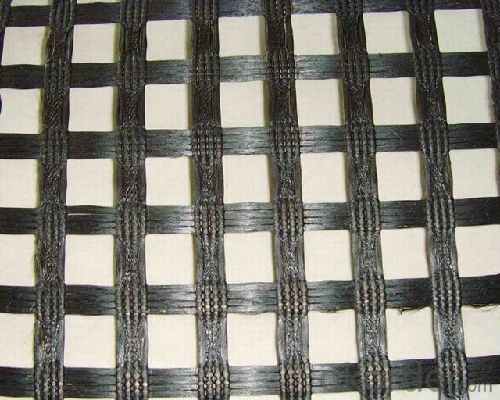
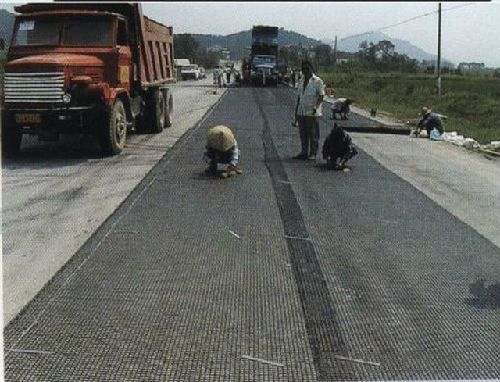
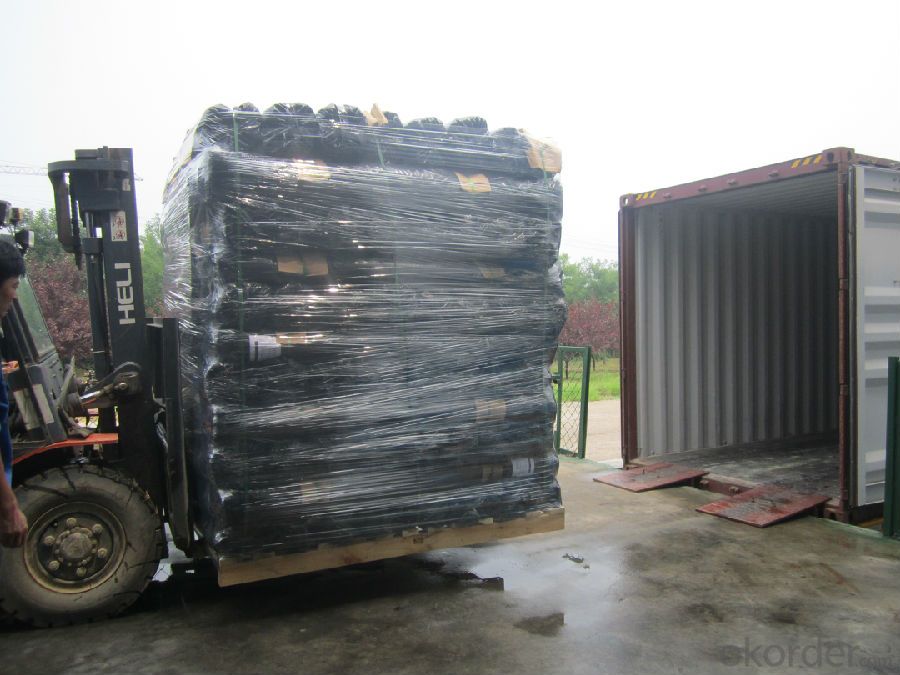
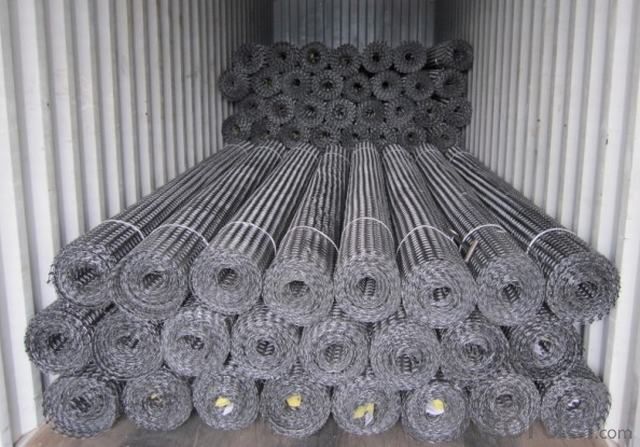
- Q: Can geogrids be used in reinforcement of foundation slabs?
- Yes, geogrids can be used in the reinforcement of foundation slabs. Geogrids are commonly used to enhance the stability and load-bearing capacity of soil, making them suitable for reinforcing foundation slabs. They help distribute the load more evenly, reduce soil movement, and prevent cracking or settling of the slab.
- Q: How do geogrids improve the performance of pavements?
- Geogrids improve the performance of pavements by providing reinforcement and stabilization. They help distribute the load across a wider area, reducing stress on the pavement and preventing cracks and deformations. Additionally, geogrids improve the overall strength and durability of the pavement, increasing its lifespan and reducing maintenance needs.
- Q: Are geogrids suitable for reinforcement of railway ballasts?
- Yes, geogrids are suitable for reinforcement of railway ballasts. Geogrids offer excellent tensile strength and stability, which helps to distribute loads and prevent ballast movement and degradation. They also improve drainage and reduce the risk of track settlement, making them an effective solution for reinforcing railway ballasts.
- Q: What is the effect of junction strength on geogrid performance?
- The junction strength of a geogrid has a significant impact on its overall performance. A higher junction strength enhances the geogrid's ability to distribute loads and resist deformation, leading to improved soil reinforcement and stability. It helps to prevent the geogrid from tearing or failing under high stress conditions, thereby increasing its durability and lifespan. Additionally, a stronger junction also enhances the geogrid's interlocking mechanism, allowing for better load transfer and confinement of soil particles. Overall, a higher junction strength positively influences the performance and effectiveness of geogrids in various geotechnical applications.
- Q: How do geogrids improve the performance of retaining walls?
- Geogrids improve the performance of retaining walls by providing reinforcement and stability. They are typically made of high-strength materials and are installed within the soil mass behind the wall. These grids distribute the loads exerted on the wall more evenly, reducing the pressure on the wall itself. This reinforcement prevents excessive movement, soil erosion, and potential wall failure. Additionally, geogrids enhance the overall strength and durability of the retaining structure, allowing for the construction of taller and more efficient walls.
- Q: Can geogrids be used in ground improvement for industrial facilities?
- Yes, geogrids can be used in ground improvement for industrial facilities. Geogrids are often used to reinforce the soil and improve its stability, which is crucial for supporting heavy structures and equipment in industrial settings. By distributing the load more evenly and reducing settlement, geogrids can enhance the overall performance and longevity of the ground beneath industrial facilities.
- Q: Can geogrids be used in retaining walls for waterfront parks?
- Yes, geogrids can be used in retaining walls for waterfront parks. Geogrids provide reinforcement and stability to the soil, preventing erosion and maintaining the integrity of the retaining wall. They are commonly used in such applications to enhance the strength and durability of retaining walls in waterfront parks.
- Q: Can geogrids be used in floating parking lot construction?
- Yes, geogrids can be used in floating parking lot construction. Geogrids are commonly used to reinforce and stabilize soil and can be used as a base reinforcement material in floating parking lot construction to improve the load-bearing capacity and prevent soil erosion.
- Q: What is the effect of aging on geogrid properties?
- The effect of aging on geogrid properties is that it can lead to a decrease in strength and stiffness, as well as an increase in brittleness and susceptibility to environmental factors such as UV radiation and temperature fluctuations.
- Q: Fiberglass grille and geogrid which use more
- Geogrid is divided into four categories: plastic geogrid, steel plastic geogrid, fiberglass geogrid and fiberglass polyester geogrid. The glass fiber geogrid belongs to the geogrid, which is more natural than the glass fiber geogrid.
Send your message to us
Que Son PVC Coated Polyester Geogrids for Civil Engineering and Road Construction
- Loading Port:
- Qingdao
- Payment Terms:
- TT or LC
- Min Order Qty:
- 5000 m²
- Supply Capability:
- 10000000 m²/month
OKorder Service Pledge
OKorder Financial Service
Similar products
Hot products
Hot Searches
Related keywords
